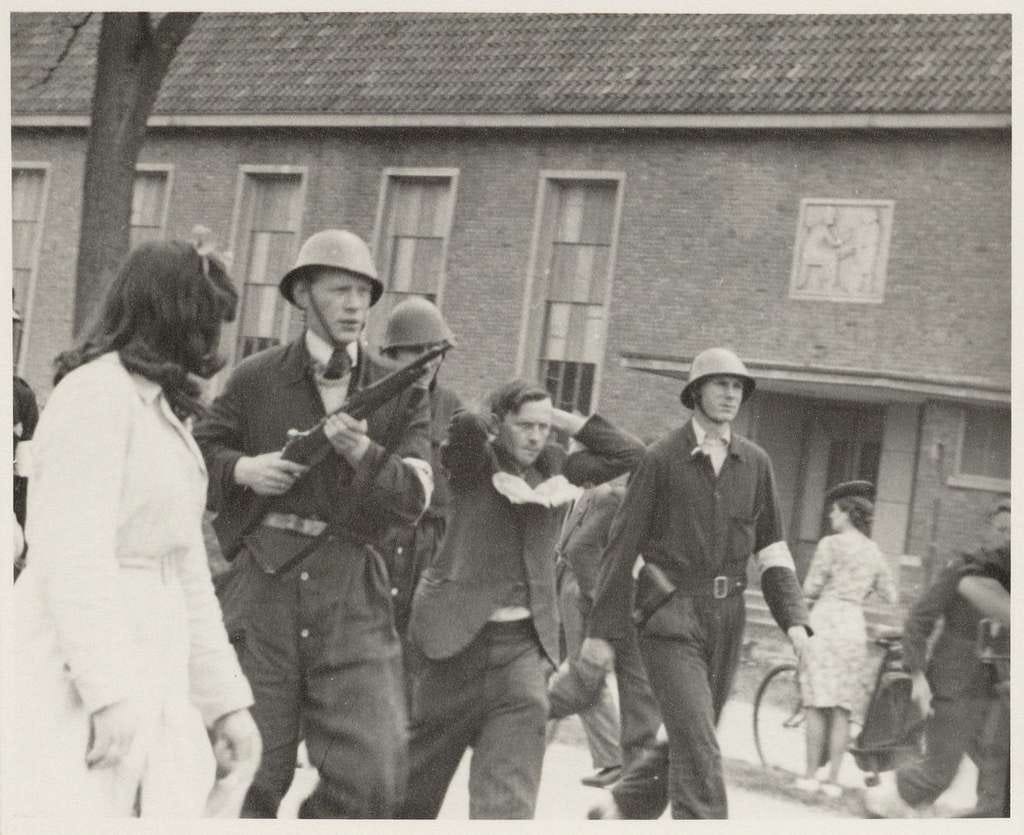Friday Reflection: The Age of Hitler and How We Will Survive It
Alec Ryrie on the Fraying of a (Negative) Moral Consensus

Published on October 10, 2025
Synopsis
In this conversation, historian Alec Ryrie reflects on his striking new book The Age of Hitler and How We Will Survive It, arguing that modern Western morality has been fundamentally shaped by the struggle against Nazism. Our society no longer defines goodness by imitation of Christ, Ryrie argues, but by rejection of Hitler—and that transformation has given the modern world both moral clarity and moral limitation.
Ryrie, a Reformation historian by training, approaches the twentieth century as an outsider—someone steeped in older moral frameworks. (As long-time listeners have often heard, it’s one of the tasks of the historian not to make the past comprehensible, but the present seem as strange as it always is.) That long view helps him recognize how strange our era really is. As he explains to Al, the early twentieth century was still a culture that, even in its secularism, revered Jesus as the ideal of moral goodness. By the mid-century, Hitler had become the ultimate reference point for evil, replacing Christ at the center of the moral imagination. Godwin’s Law, he suggests, captures this perfectly: in modern argument, all roads lead to Hitler.
Their discussion traces how this moral transition took place—from the “war for Christian civilization” that Churchill and Roosevelt invoked, through the postwar emergence of a “Judeo-Christian” and finally “universal human rights” consensus. The Second World War, Ryrie argues, became not just a military struggle but a sacred narrative: a war for the soul of humanity that fused politics, morality, and myth. The figure of Hitler, and the horror of the Holocaust, became the new definition of absolute evil.Share this with a friend who’s interested in how history shapes our moral imagination.
Yet Ryrie and Al note that this consensus is now beginning to fray. On both Left and Right, taboos surrounding fascism, antisemitism, and moral certainty are weakening. Cultural memory of the war, once unifying, has become fragmented. Pop culture—from The Lord of the Rings and Star Wars to Harry Potter—still retells the archetypal story of plucky heroes defeating genocidal evil, but that myth now feels less stable, less universal.
As the conversation turns somber, Ryrie describes the dangers of a morality built entirely on negation. A society defined by “never again” knows what evil looks like, but not what good is. The obsession with Hitler, he warns, has made us hypersensitive to one form of evil while blinding us to others—from Mao’s China to Rwanda to the darker corners of our own politics. The “Age of Hitler,” he concludes, may at last be ending—but what replaces it remains uncertain. The challenge for historians and citizens alike is to imagine a new moral framework that preserves the lessons of the twentieth century without being trapped by them.
Questions for Reflection
How does Ryrie’s idea that Hitler replaced Jesus as our moral reference point change how we think about modern values?
Why did postwar society elevate the struggle against Nazism into a defining moral myth?
What role did religion—especially Christianity—play in shaping the early language of “Christian” and “Judeo-Christian” civilization? Yet how was it different from what had preceded the war?
How did the Holocaust and trials like Eichmann’s shift public understanding of evil?
What happens to a moral system when it defines itself entirely by what it opposes?
In what ways does popular culture (from Star Wars to Harry Potter) reinforce the moral script of the Second World War?
Why does Ryrie believe that the anti-Nazi moral consensus is fraying? What evidence does he provide? Do you have your own examples, or counter-examples?
How might new moral or ideological systems replace it—and with what risks?
What does it mean to think historically about morality itself?
How can historians help societies move beyond inherited moral myths without losing their ethical bearings? Should historians engage in this task?
For Further Investigation
Alec Ryrie, The Age of Hitler and How We Will Survive It (Reaktion, 2025)
—, Protestants: The Faith That Made the Modern World (Viking, 2017)
Hannah Arendt, Eichmann in Jerusalem: A Report on the Banality of Evil (Penguin, 2006)
Richard J. Evans, The Third Reich Trilogy (Penguin, 2003–2008)
Saul Friedländer, Nazi Germany and the Jews, 2 vols. (Harper, 1997–2007)
Daniel Goldhagen, Hitler’s Willing Executioners: Ordinary Germans and the Holocaust (Vintage, 2007)
Susan Neiman, Learning from the Germans: Race and the Memory of Evil (FSG, 2019)
Timothy Snyder, Bloodlands: Europe Between Hitler and Stalin (Basic Books, 2010)
Tags: Alec Ryrie; Hitler; Nazis; Moral Consensus; Godwin’s Law; Historically Thinking; Harry Potter; Star Wars

